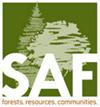林地逆权占有的法律环境与200年来的经验证据
IF 1.5
4区 农林科学
Q2 FORESTRY
引用次数: 0
摘要
在美国,私有林地变得更加分散。与其他类型土地(如农田)的管理活动相比,林地的管理活动通常较少,这使得林地容易被主张为逆权占有。在本研究中,审查了逆权占有作为一种获得林地所有权的方法在美国的法律环境。本文确定并分析了截至2021年11月50个州的法规以及1802年至2021年243个已公布的法律案例。内容分析表明,州成文法共规定了77个法定期限,平均为13年。案例的经验证据表明,静默所有权诉讼一直是主要的诉讼类型,时效占有人对林地的活动主要与木材和纳税有关,实际使用和持续占有时间是最常见的审查要素。对争议土地没有所有权的时效占有人可以使用林地,但获得所有权的可能性很小。当森林土地所有者拥有争议土地的部分产权时,他们广泛使用逆权占有作为清理所有权的法律工具。对于林地的逆权占有,成文法和普通法通过50个州的法规和200多年来公布的243个案例定义了类似的基本原则。逆权占有原则是一把双刃剑。如果土地所有人长时间不管理土地,法律允许另一个能够更好地利用土地为社会服务的人要求所有权。然而,法律要求很高,通过裸占有获得所有权的可能性很低。拥有缺陷产权的森林土地所有者也广泛使用该法律来清理他们的产权。本文章由计算机程序翻译,如有差异,请以英文原文为准。
Legal Environment of Adverse Possession on Forestland and Empirical Evidence from the Past 200 Years
Private forestland has become more fragmented in the United States. Management activities on forestland are usually infrequent compared with those on other types of land (e.g., farmland), which makes forestland prone to the claim of adverse possession. In this study, the legal environment of adverse possession as a method of acquiring title to forestland in the United States is examined. Statutes in fifty states as of November 2021 and 243 published legal cases from 1802 to 2021 are identified and analyzed. Content analysis reveals that state statutes have defined seventy-seven statutory periods, with an average of thirteen years. Empirical evidence from the cases discloses that quiet-title action has been the dominant lawsuit type, the activities by adverse possessors on forestland are mainly related to timber and tax payment, and actual use and the continuous period of possession are the most commonly examined elements. An adverse possessor without any title to the disputed land can use forestland, but the probability of receiving a title is small. When forest landowners have a portion of property rights of the disputed land, they have extensively used adverse possession as a legal tool to clean the title.
Study Implications For adverse possession on forestland, statutory and common laws have defined similar fundamentals through the statutes in 50 states and 243 cases published over 200 years. The doctrine of adverse possession is a double-edged sword. If a landowner does not manage the land for an extended period, the law allows the title to be claimed by another person who can use the land better for society. Nevertheless, the legal requirements are high, and the probability of receiving a title through naked possession is low. Forest landowners with defective titles have also widely used the law to clean their titles.
求助全文
通过发布文献求助,成功后即可免费获取论文全文。
去求助
来源期刊

Forest Science
农林科学-林学
CiteScore
2.80
自引率
7.10%
发文量
45
审稿时长
3 months
期刊介绍:
Forest Science is a peer-reviewed journal publishing fundamental and applied research that explores all aspects of natural and social sciences as they apply to the function and management of the forested ecosystems of the world. Topics include silviculture, forest management, biometrics, economics, entomology & pathology, fire & fuels management, forest ecology, genetics & tree improvement, geospatial technologies, harvesting & utilization, landscape ecology, operations research, forest policy, physiology, recreation, social sciences, soils & hydrology, and wildlife management.
Forest Science is published bimonthly in February, April, June, August, October, and December.
 求助内容:
求助内容: 应助结果提醒方式:
应助结果提醒方式:


